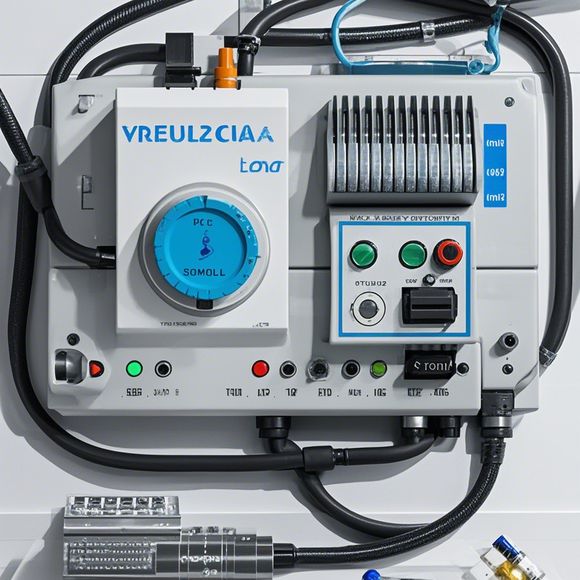Understanding Programmable Logic Controllers (PLCs)
In today's world of automation, programmable logic controllers (PLCs) have become indispensable tools for controlling industrial processes. PLCs are digital computers that are specifically designed to control and monitor various types of equipment. They can be programmed to perform a wide range of tasks, from simple on-off controls to complex algorithms that regulate temperature, pressure, or other variables.One of the main benefits of using PLCs is their flexibility and adaptability. Unlike traditional mechanical switches or relays, PLCs can be easily modified or upgraded to handle different tasks or meet changing production needs. This means that they can help companies streamline their operations, improve efficiency, and reduce downtime.Another advantage of PLCs is their ability to integrate with other systems. For example, they can be connected to sensors, motors, and other devices through various communication protocols such as Ethernet, RS485, or PROFIBUS. This allows for real-time monitoring and analysis of process data, which can help operators make more informed decisions about how to optimize their operations.Overall, PLCs offer a powerful and efficient way to control industrial equipment. By leveraging their capabilities and customizing them to meet specific needs, businesses can achieve greater productivity and success in the modern workplace.
Introduction:

Hello everyone, today we are going to dive into one of the most important tools in manufacturing and automation - the Programmable Logic Controller. PLCs are used for control, monitoring, and data acquisition in industrial settings. They are designed to handle a wide range of tasks and can be programmed to perform complex calculations and logic operations. So, what exactly is a PLC? How does it work, and why is it so important in modern manufacturing? Let's explore these questions together.
What is a PLC?
A PLC is a device that uses electronic circuitry to execute instructions or commands stored in its memory, which are typically referred to as program codes. These program codes are written by an operator using a user-friendly interface, such as a keyboard or touch screen. Once written, these program codes are stored in the PLC's memory and can be recalled at any time, allowing the controller to respond to changing conditions or new inputs.
PLCs are designed to operate in a wide range of environments, including harsh chemical processes, high-speed machinery, and even outdoor applications. Their compact size and rugged construction make them ideal for use in a variety of industries, from automotive and aerospace to food processing and textiles.
How do they work?
When a PLC senses a change in its input signals, it evaluates the new situation and compares it to stored program codes. If the current condition matches one of the predefined scenarios in the program code, the PLC executes the corresponding action. For example, if the temperature sensor reads too high, the PLC may turn off the heating system to prevent overheating.
PLCs are capable of performing a wide range of functions, including but not limited to:
Controlling motor speeds

Monitoring process parameters
Adjusting valve positions
Ensuring safety features like emergency stop buttons
Communicating with other systems via network protocols like Profinet or EtherCAT
Why are PLCs important?
Industrial automation has been revolutionizing the way businesses operate since the early days of mass production. The ability to control machines and systems remotely allows for increased efficiency, reduced downtime, and improved product quality. PLCs play a crucial role in achieving these goals by providing precise and reliable control over critical processes.
Moreover, PLCs offer numerous benefits that extend beyond just manufacturing. For instance, they can be used in healthcare settings to monitor patient vital signs and adjust equipment accordingly. In the transportation industry, PLCs can help optimize routes and schedules for logistics companies. And in the entertainment industry, they can be used to control lights, sound systems, and other elements that create a desired atmosphere in theaters, concert venues, and sports stadiums.
So, how can you ensure your PLC is working efficiently and effectively?

Regular maintenance is essential for maintaining the performance and reliability of PLCs. This includes checking for any physical damage or wear and tear on the hardware components, ensuring that all connections are secure and free of debris. You should also keep up-to-date with software updates and firmware upgrades to ensure your controller remains secure against new threats and vulnerabilities.
Additionally, training your staff on proper PLC programming and operation practices is crucial. By providing regular workshops or online training courses, you can ensure that everyone involved in the manufacturing process is familiar with how their PLC works and how to troubleshoot any issues that may arise.
Conclusion:
In conclusion, PLCs have revolutionized the world of manufacturing, automation, and industrial control. With their ability to handle complex calculations and logic operations, they provide a powerful tool for improving efficiency, reducing costs, and enhancing product quality. Whether you're looking to automate a small factory or manage a large enterprise, PLCs are an essential component for achieving success in today's fast-paced world. So why not take advantage of this versatile technology today?
Content expansion reading:
Articles related to the knowledge points of this article:
Mastering the Art of Plc Controllers: A Comprehensive Guide to Understand and Implement
PLC Programming for Automation Control in the Manufacturing Industry
How to Use a PLC Controller for Your Business
Plumbers Rule! The Role of PLC Controllers in the World of Waterworks
The Role of Programmable Logic Controllers (PLCs) in Foreign Trade Operations
PLC Controllers: A Comprehensive Guide to Understanding Their Prices